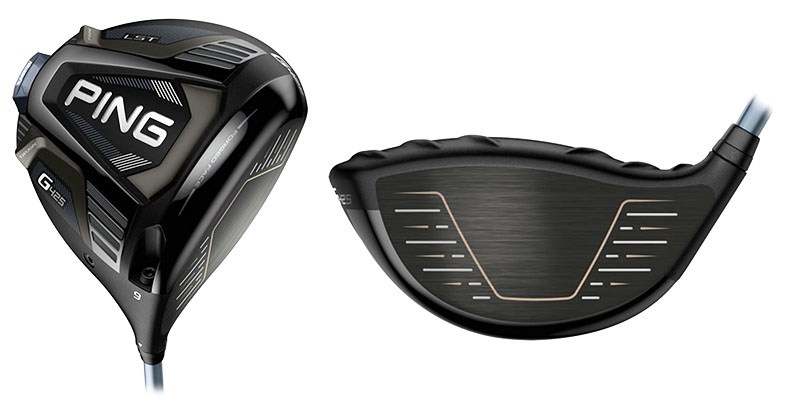
By Coach Erik Schjolberg – Jan 17, 2024
Contents
Key Takeaways
- LST stands for “Low Spin Technology”
- Tour pros Viktor Hovland, Tony Finau, and Cameron Champ game the LST
- A better player’s big stick (handicaps sub teens)
- Best suited for high swing speeds and consistent contact
- Low spin provides penetrating ball flight and maximum roll out
- Smaller head shape moves quick through the strike zone
Ping G425 LST Driver Review
G425 “LST” stands for Low Spin Technology and is Ping’s “widowmaker”, the big stick for fine-tuning your flight potential to hit bombs.
Your Norwegian wonder Viktor Hovland and homegrown heroes Cameron Champ and Tony Finau all play a version of the 9º and 10.5º head with absolutely massive results.
All of them average over 300y per drive with Champ leading the PGA Tour in 2019 at one point with 321.3y per drive (supposedly 0.1 yards off the all-time record.)
*Spoiler Alert* it’s possible to carry 300y with this stick absent the PGA credentials!
Ping G425 LST Driver Review


Lofts Available: 9º, 10.5º
Spin: Low
Pros:
- Spin reduction is excellent and effective
- Sleek/smaller head
- Stability! For a small head, it moves through the ball so well
- More forgiving than other “low spin” heads I’ve tested
- Roll out! The ball will keep moving long after it lands
- Launch control and peak height are on the low-end among competitors
Cons:
- Less forgiving than the Max edition
- Mid-pack for pure distance among competitors
- Off-center strikes deflect the face more than in the Max
- Lack of stock low spin/launch shaft options for high swing speed players
Lofts Available
Adjustable 9º and 10.5º (for a full write up on how to select the right driver loft, check this article out)
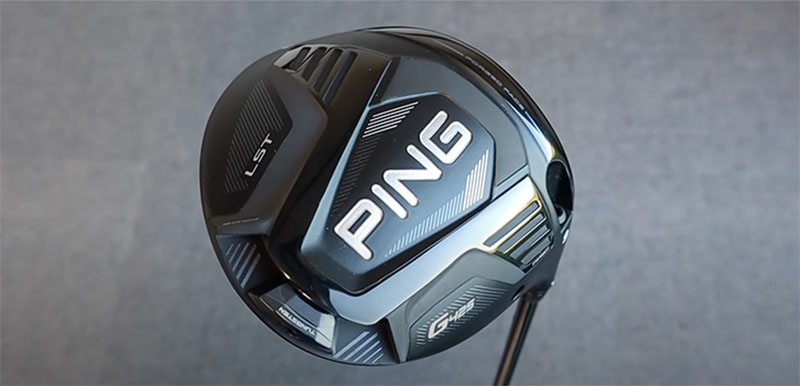

Handicap Range
Pro to 13. The G425 LST driver is designed for speed, penetrating ball flight, and low spin drives… but can be punishing if you hit the ball too far outside of the sweet spot. Players looking at this model typically are comfortable driving the ball, have higher swing speeds, and have excellent center contact.
Technical Review
The G425 LST model shares the same innovative technology as its siblings in this edition, but is balanced to find the sweet spot between weight, launch, and spin to produce penetrating ball flights with maximum roll-out.
One maxim in golf is that weight at the back of the club coupled with a low CG will help facilitate launch and spin for control. Players that have higher swing speeds (think 105+ mph) will often benefit from the forgiveness of models like the Max, but struggle with sky-high launch angles and spin numbers above 3,000 RPMs.
This will result in loss of distance, and even unwanted flight patterns if side-spin is a factor. The G425 LST is designed to curb both issues with a more compact head and balanced weight profile.
While the Max and SFT boast 26 and 23 grams of tungsten weight positioned low in the head, the G425 LST driver shaves that number down with a marginally higher seated 17g weight.
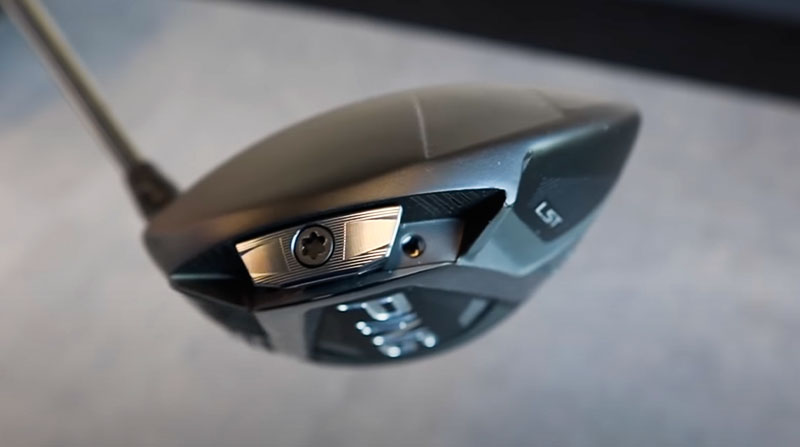

The club-head is also designed to be slightly more compact at 445cc than its siblings. Ping advertises that they have managed to drop spin numbers an additional 200-400 rpm from the G410 LST, an already proven low spin driver. That’s truly impressive.
Performance – My Test Results
My performance test for the G425 LST driver review… this driver is the distance weapon of choice in the Ping family. The marriage of the latest Ping tech with the smaller head and moveable weight effectively drops the launch angle and spin off the face of the club while producing excellent ball speed.
- Ball flight was lower and more penetrating
- We have roll out!
My drives tend to be long, but all carry. Similar to my irons, my drives typically get out fast and high to essentially hop and stop close to where it landed even at 280+ yards.
While easier to hit, oversized drivers often cause the backspin numbers to creep up the faster I swing, causing fluctuations in carry distance… add a light breeze and this can result in 30y discrepancies with a well-struck shot that fall short of expectations.
**Spoiler Alert** I was still able to break 300y with this bad-boy without significant extra effort!
Here, the G425 LST tech worked for me by keeping backspin under 3000 and consistently helping me get the ball downrange with a more controlled rise through the air. Further confirmation that the head was doing something right is evident as I was able to tack on an extra 10-20 yards of roll-out.
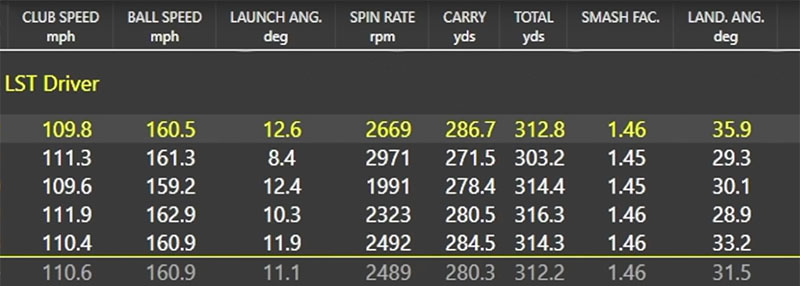

While these are all positive findings, the distance capability of the G425 LST is a double edged sword…
Front-to-back dispersion is the least consistent for the G425 LST out of its siblings. While I had a lot of fun hitting bombs off the tee, there is a premium placed on quality contact with this smaller head.
Deviations that were more than half a ball outside the center turbulators caused more significant drops in overall carry and total distance compared to the Max.
LST giveth, and LST taketh-away!
Players that are comfortable driving the ball and that are consistently in the strike zone will benefit the most from this head.
Sound and Feel
The G425 LST driver feels quick through impact and the ball jumps off the face on centered strikes. Feedback on strike location is more pronounced than the SFT and Max models.
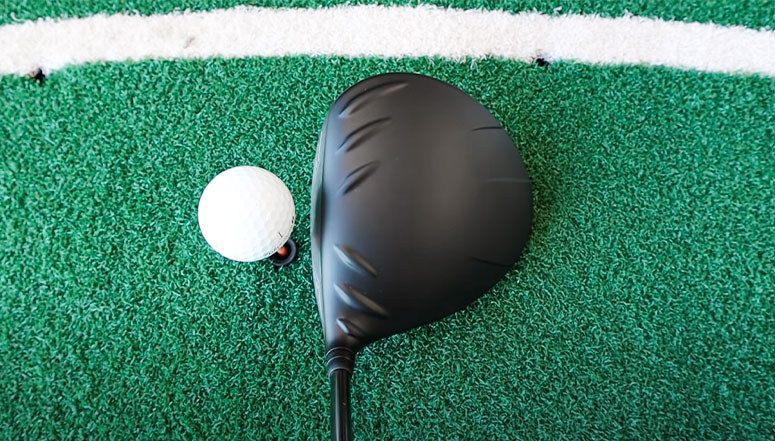

It’s on par with what you would come to expect from the G400 and G410 series, if not a little bit softer with the innovations of the Forged Face Technology and updated Dragonfly webbing. Overall, very pleasant to hit without a metallic feeling.
Sound still has a loud rapport, but it doesn’t rise to the level of the Max.
Pros
- Spin reduction is excellent and effective
- Launch control and peak height are on the low-end among competitors
- Stability! For a small head, it moves through the ball so well
- Sleek/smaller head
- More forgiving than other “low spin” heads I’ve tested
- Roll out! The ball will keep moving long after it lands
Cons
- Less forgiving than the Max edition
- Off-center strikes deflect the face more than in the Max
- Lack of stock low spin/launch shaft options for high swing speed players
- Mid-pack for pure distance among competitors
Alternate Colors
So Bubba Watson actually has his own hot pink color scheme for this driver. And yes, it is available to the public! It’s pretty cool, check it out…
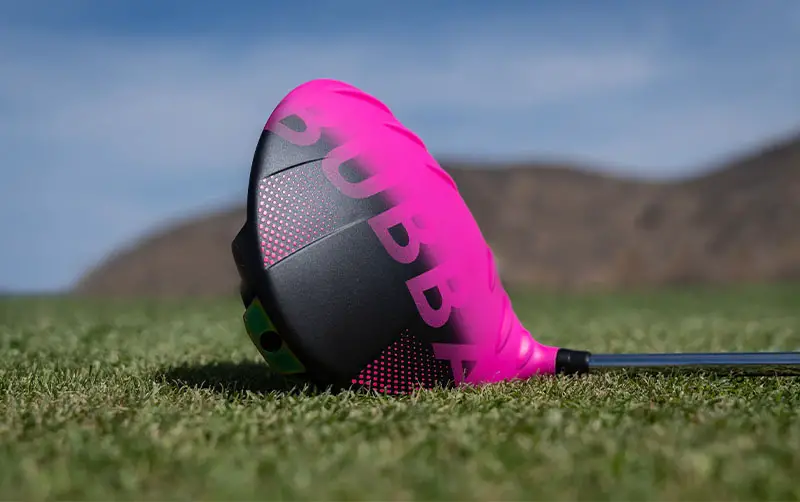

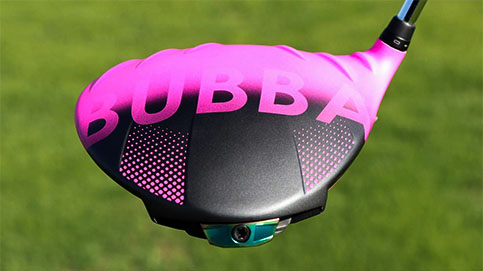

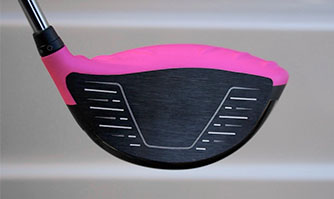

The Bottom Line
If you’re a Ping aficionado and swing for the stars, you’ll love the G425 LST driver model for pure distance and control.
Ping marries the fairway finding magic they’re so well known for in a sleek, smaller package that will appeal to players with high-swing speeds seeking distance.



Lofts Available: 9º, 10.5º
Spin: Low
Pros:
- Spin reduction is excellent and effective
- Sleek/smaller head
- Stability! For a small head, it moves through the ball so well
- More forgiving than other “low spin” heads I’ve tested
- Roll out! The ball will keep moving long after it lands
- Launch control and peak height are on the low-end among competitors
Cons:
- Less forgiving than the Max edition
- Mid-pack for pure distance among competitors
- Off-center strikes deflect the face more than in the Max
- Lack of stock low spin/launch shaft options for high swing speed players
Other Drivers in the Ping G425 Family
There are 2 other drivers in the G425 family line… If you’re looking for a more forgiving option, check out our article on the Ping G425 Max driver review here, and if you’re battling the dreaded slice, the Ping G425 SFT driver review might be more to your liking.
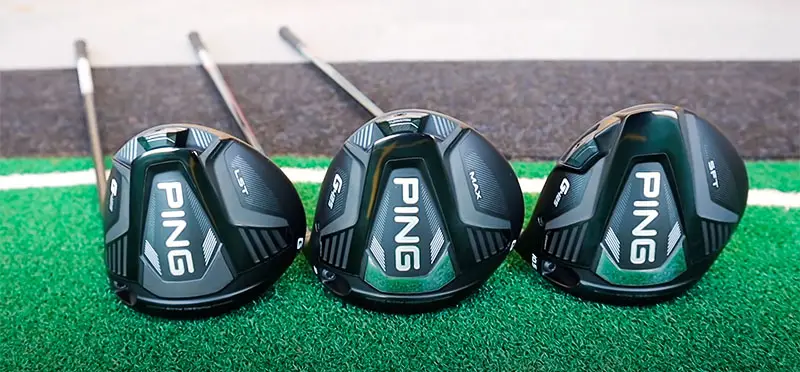

Alternative Drivers to the Ping LST G425
Ping G430 LST
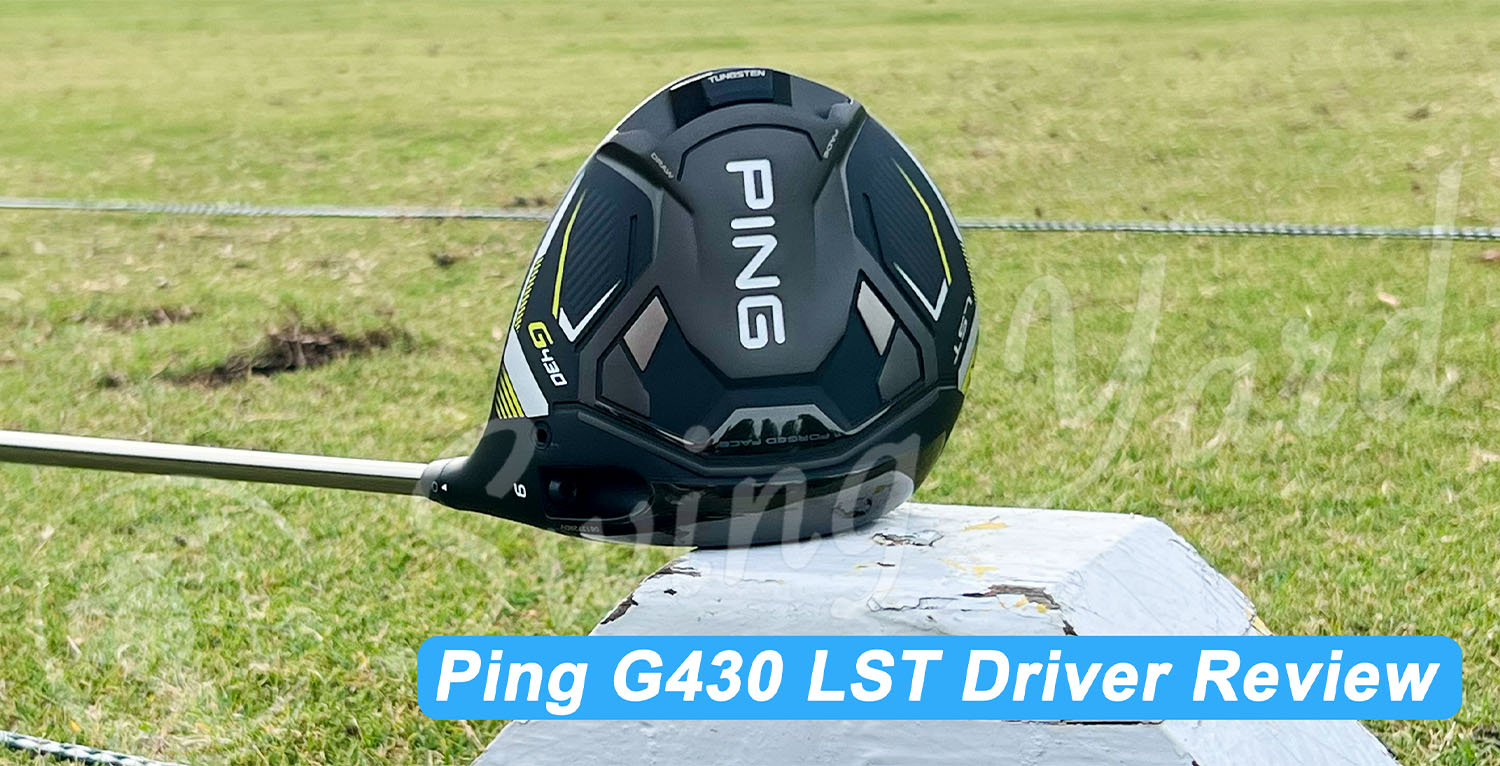

Yes, in 2023, Ping released the next generation of their flagship driver series. Back again (and better than ever?) is the LST for the low handicap category. Check out our Ping G430 LST Driver review and test here.
TaylorMade SIM 2
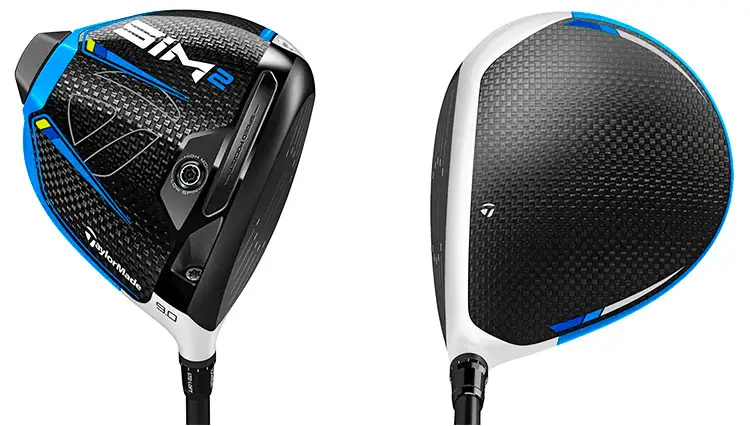

The SIM 2 is TaylorMade’s low spin driver model that is similar to the G425 LST. There are obviously some differences though, so if you want to check that out, our review of the TaylorMade SIM 2 driver can be found here.
Callaway Epic Speed
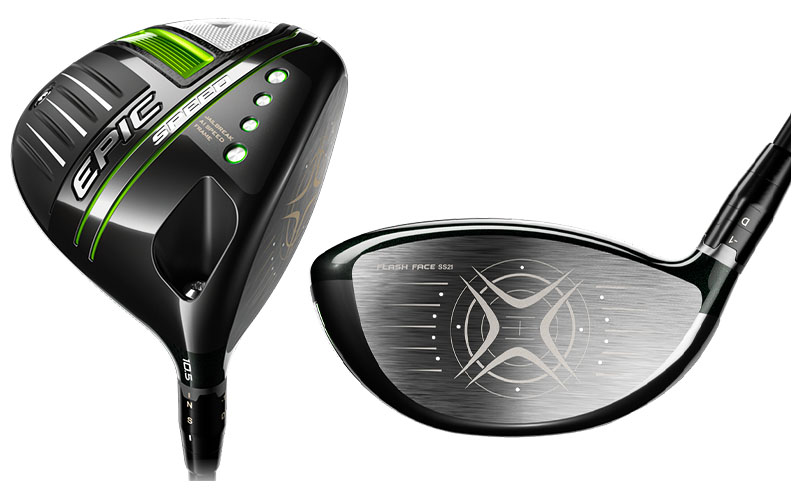

Callaway’s Epic Speed is the most similar model in their driver line up to the LST. It’s not technically a “low-spin” model, and they do offer a “Max LS” version, but in my opinion, the Speed is there most skilled driver in the line and would be comparable to golfers looking at the Ping LST.
We have a full review of the Epic Speed over here (and the Epic Max LS right here if you do want to check that one out).
Cobra Radspeed
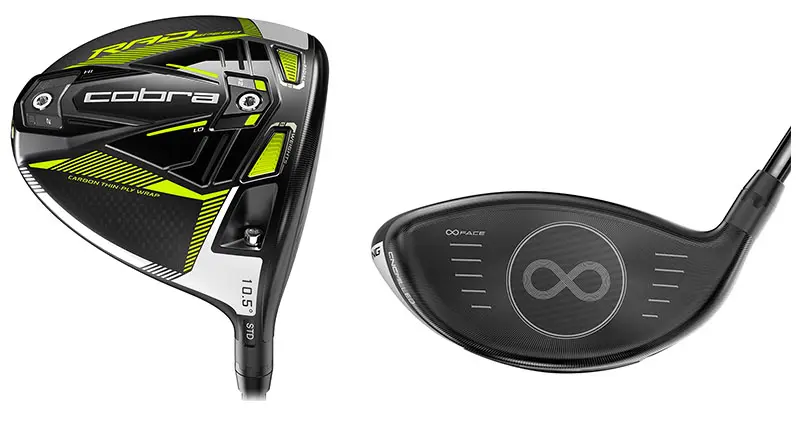
Cobra does have a low spin option as well, the Radspeed. It’s pretty comparable to the LST but a little different obviously. Our full write up of the Cobra Radspeed can be found here.
Best Golf Drivers In this Same Category


If you’re someone who’s looking for other low spin or advanced level drivers, we have a massive write up on the top 5 best drivers along with a buying guide if you want to check that out as well.
FAQ
Note – Some of these FAQs were covered throughout the article, but I still get these questions a lot… so here are the “short and sweet” answers to the most common questions:
Do any pros use Ping G425?
Some of the Pros using the Ping G425 are Viktor Hovland, Louis Oosthuizen, Tony Finau, Bubba Watson, Cameron Champ, Stewart Cink, Tyrrell Hatton, and more.
Is the ping G425 LST forgiving?
The Ping G425 LST driver is not a very forgiving club. It’s geared more towards lower handicap players who can consistently hit the sweet spot and are looking to lower spin and add some distance to their drives.
What does LST mean on Ping driver?
LST on the Ping Driver stand for Low Spin Technology. The ‘low spin’ term is for players who have a very high swing speed (105mpg +) and need to reduce spin in order achieve a lower ball flight.
How does ping LST work?
The Ping LST driver works by lowering the weight in the bottom rear of the club, creating lower overall spin and reducing the apex (height) of the ball flight trajectory.
What driver does Bubba Watson use?
The driver that Bubba Watson uses is the G425 LST driver from Ping. He also sometimes uses a custom color scheme (that is also available to the public) with various combinations of hot pink.



Lofts Available: 9º, 10.5º
Spin: Low
Pros:
- Spin reduction is excellent and effective
- Sleek/smaller head
- Stability! For a small head, it moves through the ball so well
- More forgiving than other “low spin” heads I’ve tested
- Roll out! The ball will keep moving long after it lands
- Launch control and peak height are on the low-end among competitors
Cons:
- Less forgiving than the Max edition
- Mid-pack for pure distance among competitors
- Off-center strikes deflect the face more than in the Max
- Lack of stock low spin/launch shaft options for high swing speed players




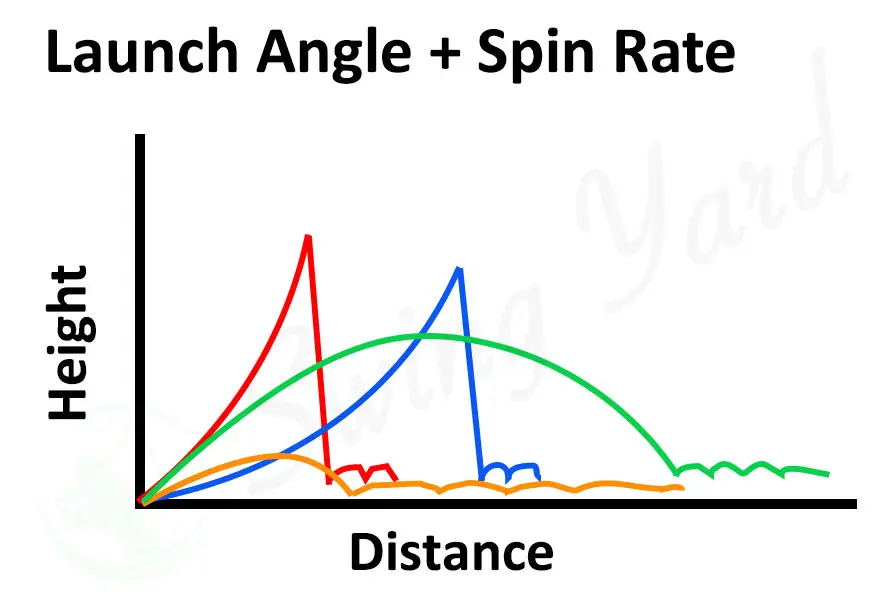
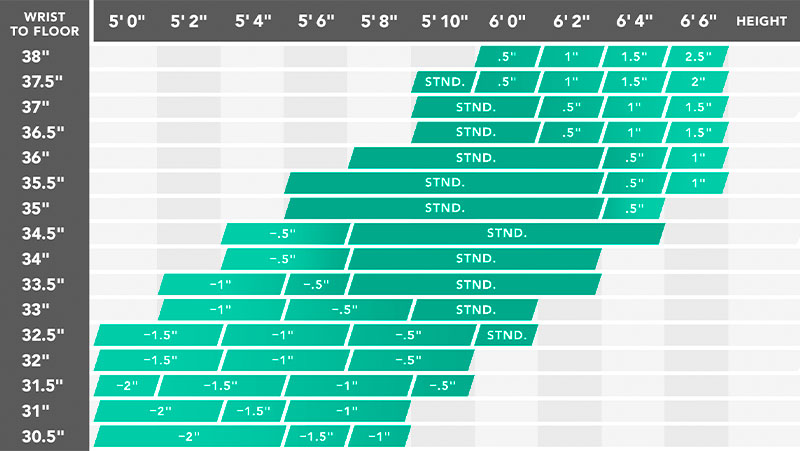

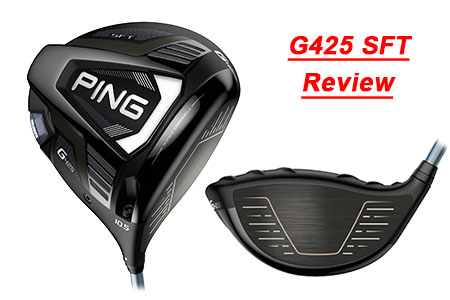


keep posting bro. Its important to have alternatives to Plugged In Golf and my golf spy. I enjoy their content very much as I did yours.
Thanks man! I’m just trying to offer up my honest opinion as unbiased as I can to help you guys make these important decisions haha 🤙